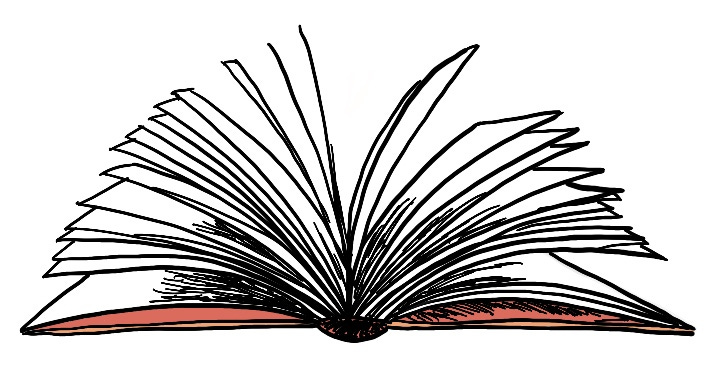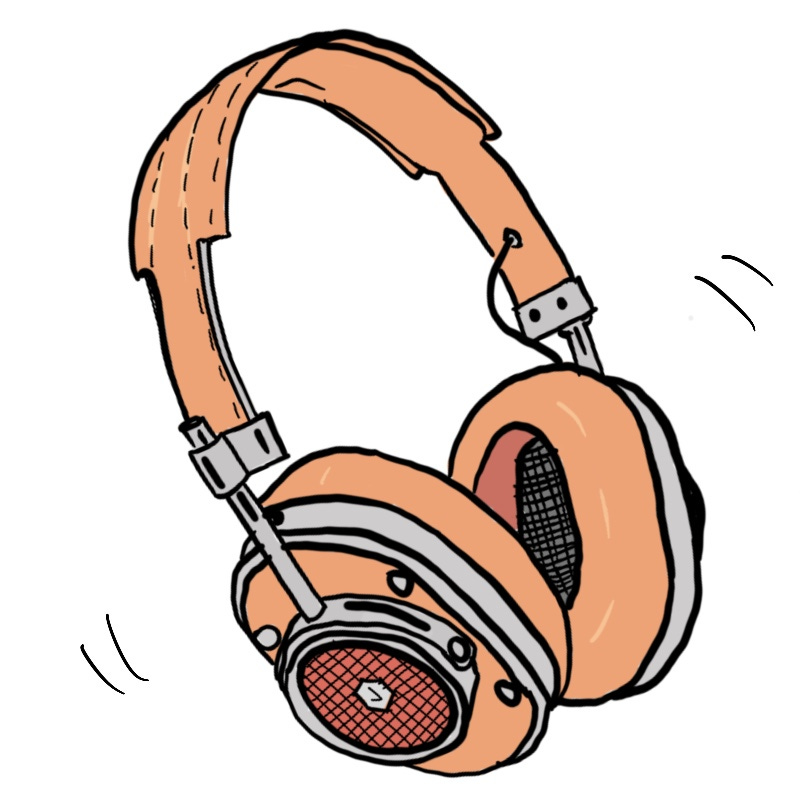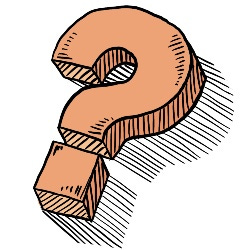Raised by Literature
Do we make books or are we made by them?
Don’t like reading? Allow me to read it to you 👈
The books on our shelves are libraries to ourselves. Massive structures at the center of our towns.
Yourself. Myself. THE self. The I.
All our check-ins and checkouts. All our late returns and torn spines. All our coffee stains and missing pages.
Our books—the ones we keep and arrange like trophies from childhood—are the index to our lives.
In our stacks, the days, the weeks, the months, and years of us. A catalog of Dewey Decimal, with thoughts, ideas, beliefs, and read-laters, slotted onto neat cards (analog or digital, depending on the age of your structure) and filed away in our brains for access at the creation times.
They make a ‘shft’ sound each time we pull one out and crack the cover to read.
These are your books. This is your library.
Access to ourselves, for ourselves, to share with others, should we choose to loan ourselves out.
How we view love. How we see grief. A story of war and joy and peace and here’s one on equatorial weather patterns.
This is our brick-by-brick building, this is our page-by-page knowledge.
Books are currency. Of life spent and cashed in. Of things owed and squandered by characters.
Characters who do not resemble us at all, or resemble us so accurately we check behind the Monstera in the corner for a listening device.
Books are food, designed to be eaten by the eyes first, then the mind.
Books are designed to be consumed, with satisfaction burped mightily upon finishing.
Books sit still and heavy in our hearts, burning and uncomfortable until we find mind medication.
When the dustman comes, the dustman claims all until we stick a thumb to a spine and massage the words back into our lives.
Books.
If you read at all, you are made from books.
-
There were 50,000 books at the Tom Verlaine book sale. That was the rumor.
I read the rumor, feeling my heart racing like an outboard motor.
Just at the thought of it. Just at the thought.
Fifty-thousand hold-in-your-hand books with contents and subject matter that a member of the old guard—and I say that with such reference and affection, it can’t possibly be construed as an insult, can it?—had slotted somewhere into his mind throughout his life as potential reference material for songs, thoughts, and passionate arguments over tables.
For his visions.
These would be the pages or excerpts found inside a man.
This man.
Tom Verlaine was made from books.
This is speculation, of course, as are many thoughts about a stranger’s life and how they came to be who they are or were.
All life is projection.
As are books.
Did he, I wondered, mulling over the thought of fifty-thousand books, did he purchase any of his books based purely on cover art? Flipping over a paperback found in the $1 cart at the Strand bookshop—where he was by all accounts, a regular—how often did Tom Verlaine find a musty paperback with a graphic so titillating and weird that he just laughed and immediately tucked it under his armpit and said “yes.”
You shouldn’t judge a book by its cover. That’s what I was always told.
The cover is not the contents.
Book covers—like humans—often lie.
But hey, if we’re being honest, many books are lies, fabricated on purpose for our enjoyment.
Isn’t it wonderful?!
-
To be raised by literature.
This is not a sleight on parents. They are not neglecting their readers. Parents introduce the books or deposit the child in the library. It is the parents who point the way to the escape hatches, the looking glasses, and the never-never lands.
Small minds find themselves in big books.
Books about hungry caterpillars, wild things, wizards with scars on their heads (and hearts), and a mysterious substance called Turkish Delight which can be found by pushing through the coats at the back of a cupboard. Questions to a God about bras.
Until we find life outside, we find it within.
And in the pages of books.
Cells and atoms, the blood of our bodies, absorbing words and pictures and the sounds of our parents’ voices at the edge of our beds.
This is what it’s like to be angry.
This is what it’s like to dream.
This is the letter P.
Finding solace, finding fate, finding the bricks to our own libraries by entering the structures of others.
Magical, beautiful, whimsical, and free.
Until we are razed by literature with the devastating loss of a spider who lived in a web in the corner of a barn.
But we bounce back.
With books.
-
He was voracious—in reading and collecting books. Secondhand seemed to be his jam. Book genre seeds appear to be scattered far and wide in his field of subject matter.
Did Tom Verlaine, I wonder, ever choose a book based on the title? Not to project my own habits upon him, but I may have chosen like that once or twice while browsing the bins of a secondhand bookshop. A funny title spurs curiosity, sure, but sometimes it’s nice to look up at a shelf and just chuckle at something dumb, thinking: “Maybe one day I’ll be inspired by that.”
By a title. A title that is both sublime and ridiculous.
At the Tom Verlaine book sale, I’m sure I could find many weird, eclectic, and hilarious titles. Titles that arrange themselves like some kind of Tetris comedy as I stuff them into my seventy-five or one-hundred-and-fifty-dollar build-a-box, (which was how they ran the sale.) As I stuff them in, would they arrange themselves in that cutup lyric technique, with spines up and laughing at the chorus they are making in my build-a-box of Tom Verlaine’s books?
I was not there—at the Tom Verlaine book sale—so once again, I am merely projecting. Instead, I live vicariously through first-hand accounts of lines stretching around blocks and people chatting and sipping coffee as they wait. I glean subjects and genres from these accounts too. See that the sellers have attempted to group books into sections for the sale, to make perusal of his brain easier.
How would I have shopped the sale? Which box would I have committed to? What would I have stuffed in? Would I have gone only for poetry? World politics? Religions and cults and sects and combinations of all three? Would I put them in a box with philosophy and sex and business and music and life and love and science and music and music and music?
Design and art and photography and physics, nestling with numbers and iconography and variables and constants.
Books are equations for living.
The components of me, the math of us.
How did Tom Verlaine organize them when he was with us? With that many books, you can’t do anything dumb and pointless. No by-size or color categorization here. Was there a map, pasted into the inside cover of Tom Verlaine’s brain so he knew where everything was in this world?
The endpapers to this world—his world, this planet of books.
Spiritual, physical, whimsical, logical. Would these be some of the cards in the Tom Verlaine brain catalog? I doubt he’d read them all. You don’t have to read all your books. The joy of many is to simply flip and dip as the mood takes you. Look at photographs. Admire a paragraph here and there. Underline something.
A dip at the fountain of knowledge.
A hook to a heart then out again in a flash, pulling a word fish with you.
People are fascinating.
People and their books.
We are our own reference sections.
We are built from books.
-
What does it mean to be fluid?
To jump from cowboy literature to a book on racing weight for athletes and over to advertising with the run of your finger.
Is that it?
A vast collection leads to a vast landscape within the mind, capable of running for miles in the open prairie of knowledge. This is a sentence I just wrote that made me cringe. You can look up cringe in the dictionary. There are four dictionaries on the bottom shelf of my bookcase.
Cringe.
A word that is having a moment.
Fluid.
That’s another word. I used it just now. Before.
Life is fluid. Your influences should be fluid, too.
Pull from everywhere. All shelves. All books. All times.
-
Walking into the center of anyone’s book collection—whether it’s 50,000 books or fifty—is like walking inside of a brain. Stand still. Look around.
Is it shouty, calm, quiet, or stoic? Is it poetic, smart, or seeking?
Did walking into Tom Verlaine’s book sale feel like walking into a poet’s heart and brain and finding so much debris on the floor and paint peeling off the walls that you wondered how he ever got anything done?
If you saw that, would you first wonder at how, and then be immediately filled with hope?
If he could stuff this much in and still get it done, so can I.
Maybe.
His brain, your brain, my brain.
Books are just streetlights illuminating conditions.
The same operating parameters.
On and off as the world—and page—turns.
-
A bookshelf is your brain on display. A spice rack of taste you can burn should the heater break, the triffids come, or the long and dark nuclear winter held in some of those books materializes.
There is no point to books.
There is every point to books.
The point is food. The point is sustenance. The point is frustration and wonder and curiosity. The point is the firing up of neurons in pleasant—and sometimes horrible—ways. The point of books is to illuminate all the attics and basements and floors and rooms and pantries and back halls of our brains with that spark of life and love and humanity and the search for understanding.
The search for meaning.
All your books. All their words, in your brain, to reword and speak back, as yourself.
The self.
You.
But in the end, like at the Tom Verlaine book sale, books don’t belong to you.
Not really.
Tom Verlaine died—and may he rest in peace—but the books he owned did not. His books will not.
Books, like stories, live for as long as they are passed from hands to hands to hands. Books deserve a build-a-box destiny—like at the Tom Verlaine book sale—so that someone can take your treasure in their hands and judge a cover or a title or the feel of a book you once owned and claim it as their own.
They will now go build another better human, in a house that you do not live in, and they will do it with that book.
That’s the beauty of a life made from books.
We live between the endpieces. Start to finish. All words.
You cannot be a visionary without vision, and vision can be found in books.
Don’t own any?
It’s never too late to start the library of your life.
Yours in tiny thought,
Janeen
Take a deep dive into this post. Watch this👇
Behind the Streams, Ep 27: "Raised by Literature"
Watch now (12 mins) | There were 50,000 Books at the Tom Verlaine book sale. What do the books we own say about us?
This week’s amends…
"Don't plant your bad days. They grow into weeks. The weeks grow into months. Before you know it you got yourself a bad year. Take it from me. Choke those little bad days. Choke 'em down to nothin'. They're your days. Choke 'em!"- Tom Waits
On Rotation: “Marquee Moon?” by Television.
Spin it if you’ve got it. RIP, Tom Verlaine.
If you’re into books, you might be just as intrigued by the endpapers as I am. Sometimes they’re just pretty patterns, but often they act as setups or teases for the book’s content. Sometimes, the endpaper is a map or guide for the world you’re about to enter. This article describes them as ‘the first secret hiding in between the covers’ and they can add depth and richness to the experience.
Love endpapers? There’s a Facebook group for enthusiasts, called We Love Endpapers. Dig in. This is the end.
Via… all over. Dribs and drabs. Janeen falling down a hole.
A moment with Sheila E.
Shameless Podcast Plug
Listen to audio versions of early issues of The Stream on my podcast, Field of Streams, available on 👉 all major podcasting platforms 👈
Here’s Apple











